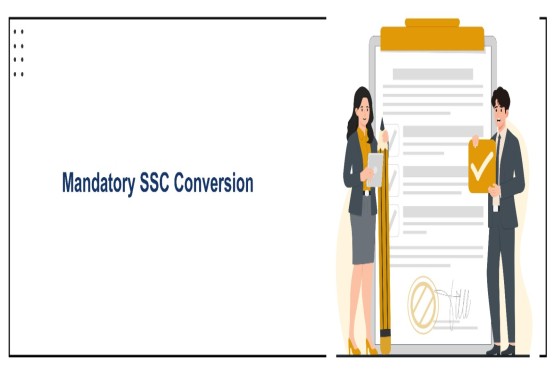The Companies Act, 2013 since its inception, prescribes many major regulatory needs or compliances for the company Registration process or post Incorporation including operation, and governance of companies in India. One of the mandatory post company registration compliance is the filing of e-Form INC-20A, the declaration for commencement of business under Section 10A of the Companies Act 2013 within 180 days from the date of Incorporation. A delay or default in such compliance triggers penal consequences, including monetary penalties and, in aggravated cases, prosecution under Section 454(8) of the Companies Act 2013.
In a recent landmark judgment, the Kerala High Court clarified a crucial aspect of procedural fairness by holding that the Registrar of Companies (ROC) cannot initiate criminal proceedings under Section 454(8) while the appeal against the penalty order under Section 454(5) is pending. The case—Resfeber Infosolutions Private Limited & Anr. vs. Union of India & Ors.—provides significant relief to companies facing prosecution in similar circumstances and reinforces the importance of due process.
What is Section 10A, 454(5), and 454(8) of the Companies Act, 2013
Section 10A – Declaration for Commencement of Business
Time Limit of INC -20A filing is given under Section 10A mandates that a company having share capital must file a declaration in e-Form INC-20A with the ROC within 180 days of its incorporation, confirming that it has received the subscription money from all its subscribers.
Non-filing of this form results in:
-
Liability to pay penalty under Section 10A(2),
-
Company’s inability to commence business or borrow funds including Directors Loan
-
The possibility of the ROC initiating action for removal of the company’s name from the register.
Section 454 – Adjudication of Penalties
The process for imposing penalties for non-compliance is governed by Section 454. The relevant sub-sections are:
-
Section 454(3): Allows the adjudicating officer (usually the ROC) to impose a penalty after providing an opportunity to be heard.
-
Section 454(4): The order imposing the penalty is binding unless appealed.
-
Section 454(5): Allows the aggrieved party to file an appeal before the Regional Director (RD) within 60 days.
-
Section 454(6): Permits a further extension of 30 days for filing the appeal, provided sufficient cause is shown.
-
Section 454(8): If the penalty is not paid within 90 days from the date of the adjudication order, the company and its officers may be prosecuted.
Background of the Case
-
Company: Resfeber Infosolutions Private Limited
-
Date of Incorporation: 10 January 2019
-
Registered Office: Trivandrum, Kerala
-
Compliance Lapse: The company filed Form INC-20A belatedly on 10 July 2019, i.e., one day delay after the statutory period of 180 days.
Adjudication by ROC
The ROC, Kerala and Lakshadweep, examined the delay and passed Adjudication Order No. ROC/S-454/10A//2020 dated 20.01.2020. Penalties imposed were:
-
Rs.50,000 on the company
-
Rs.1,000 on the director Ms. Kavitha Somasekharan (@ Rs.1,000 per day)
This MCA adjudication was made under Section 454(3) read with Section 10A(2) and Rule 23A of the Companies (Incorporation) Rules, 2014.
Appeal Before the Regional Director – ADJ/08/RD(SR)/2021-22
The company and its director filed an appeal before the Regional Director (Southern Region), Ministry of Corporate Affairs, Chennai under Section 454(5), contesting the penalty.
Delay in Appeal
-
Appeal Filed: 7 September 2021
-
Delay: 537 days beyond the original 60-day period
-
Justification: Cited the Supreme Court’s Suo Motu Writ Petition (Civil) No. 3 of 2020 and sought exclusion of the COVID-19 period (15.03.2020 to 14.03.2021) from the computation of delay.
RD's Rejection
-
The RD dismissed the appeal as time-barred.
-
Ministry's General Circular No. 12/2020 (dated 30.03.2020) had already extended the deadline by 120 days, meaning the last date to file the appeal was 18.07.2020.
-
As the appeal was filed only on 07.09.2021, it was far beyond the extended limit.
RD's Final Order
-
Appeal rejected.
-
Original ROC penalty order upheld.
-
Directed appellants to remit the penalty within 15 days.
-
Authorized ROC to initiate prosecution under Section 454(8)(ii) in case of non-payment.
Prosecution and Kerala High Court Intervention
Despite the pendency of the appeal and delayed disposal, the ROC proceeded to file a criminal complaint under Section 454(8). Aggrieved, the company approached the Kerala High Court seeking relief.
High Court’s Analysis and Judgment
The Kerala High Court critically examined the timing and legality of the complaint filed by the ROC.
Nature of Section 454(8):
-
This provision applies only when the penalty order has attained finality.
-
Initiating prosecution before the appeal is disposed of—even if later dismissed—violates the principle of due process.
Premature Prosecution:
-
Since the company had exercised its right of appeal under Section 454(5), even if delayed, prosecution under Section 454(8) should not have been initiated before the disposal of the appeal.
-
Filing a complaint during the pendency of statutory remedies defeats the purpose of appellate redressal.
Violation of Natural Justice:
-
The penal process must follow a sequential structure—first adjudication, then appeal, and only upon finality, prosecution.
-
Premature prosecution denies the appellant their legitimate right to challenge an adverse finding.
Quashing of Proceedings:
-
The Court quashed the complaint filed under Section 454(8), declaring it premature and unjust.
Procedural Significance :
1. Clarification on Procedural Hierarchy
This case establishes that criminal complaints under Section 454(8) can only be filed once all appellate mechanisms are exhausted. This upholds procedural fairness and provides a logical structure for enforcement actions.
2. Applicability of Supreme Court's Limitation Order
While the RD rejected the appeal as time-barred despite the Supreme Court’s suo motu order, the High Court’s intervention suggests that statutory rights of appeal cannot be rendered nugatory through overlapping interpretations of limitation extensions.
3. Protection Against Harassment
The ruling offers relief against parallel penal actions and ensures that companies are not prosecuted unless their challenge against a penalty has been conclusively decided.
Practical Takeaways for Companies and Professionals specially the Company Secretaries (CS)
A. Compliance Advisory
-
Always file Form INC-20A within the statutory 180 days.
-
Even a 1-day delay can trigger significant penalties under the MCA adjudication mechanism with penalty.
-
Directors are individually liable, and the penalty is per day of default.
B. Timely Appeal Filing
-
Appeals under Section 454(5) must be filed within 60 days, extendable by 30 days upon showing sufficient cause.
-
Any reliance on COVID-19 extensions must be carefully interpreted in light of MCA circulars and judicial precedent.
C. Maintain Appeal Record
-
Maintain SRN and acknowledgment of Form ADJ filing.
-
Even if appeal is filed late, continue tracking the matter until it is conclusively disposed of.
D. Watch for Prosecution Triggers
- If the ROC initiates prosecution under Section 454(8) while appeal is pending, such action can be challenged as premature based on this High Court ruling.
Therefore, The Kerala High Court’s judgment in Resfeber Infosolutions Pvt. Ltd. marks a significant affirmation of procedural rights under the Companies Act, 2013, which clarifies the interpretation of Section 454(8) and shields companies from hasty and unjustified prosecutions.
For legal and compliance professionals like Company Secretaries, the ruling serves as a precedent to challenge improperly filed criminal complaints and to reinforce the right to appellate adjudication. In an increasingly penal corporate regime, this decision strikes a balance between enforcement and fairness, ensuring that companies are not prosecuted while they are still within their rights to contest a penalty. This case will undoubtedly serve as a guiding light in future MCA/RD/ROC adjudication matters under Section 454 of the Companies Act, 2013, especially concerning the timing of prosecution, validity of appeal, and applicability of limitation extensions.











































































_crop10_thumb.jpg)


































































_crop10_thumb.jpg)
_crop10_thumb.jpg)



_crop10_thumb.jpg)


_crop10_thumb.jpg)





_crop10_thumb.jpg)

_crop10_thumb.jpg)














-suratgujarat-section-158_crop10_thumb.jpg)
-suratgujarat_crop10_thumb.jpg)
-(33)_crop10_thumb.jpg)



-ahmedabad_crop10_thumb.jpg)
-learn_crop10_thumb.jpg)

-learnn_crop10_thumb.jpg)



























































_crop10_thumb.jpg)























_Guidelines_learn_crop10_thumb.jpg)























_learn_crop10_thumb.jpg)
_crop10_thumb.jpeg)









_crop10_thumb.jpg)




_Second_Amendment_Rules,_2025_learn_crop10_thumb.jpg)







_learn_crop10_thumb.jpg)












































_learn_crop10_thumb.jpeg)























_learn_crop10_thumb.jpg)



_rd_roc_learn_crop10_thumb.jpg)
















_learn_crop10_thumb.jpg)














_learn_crop10_thumb.jpg)
_Learn_crop10_thumb.jpg)











































_learn_crop10_thumb.jpg)




_learn_crop10_thumb.jpg)













_crop10_thumb.jpeg)


















